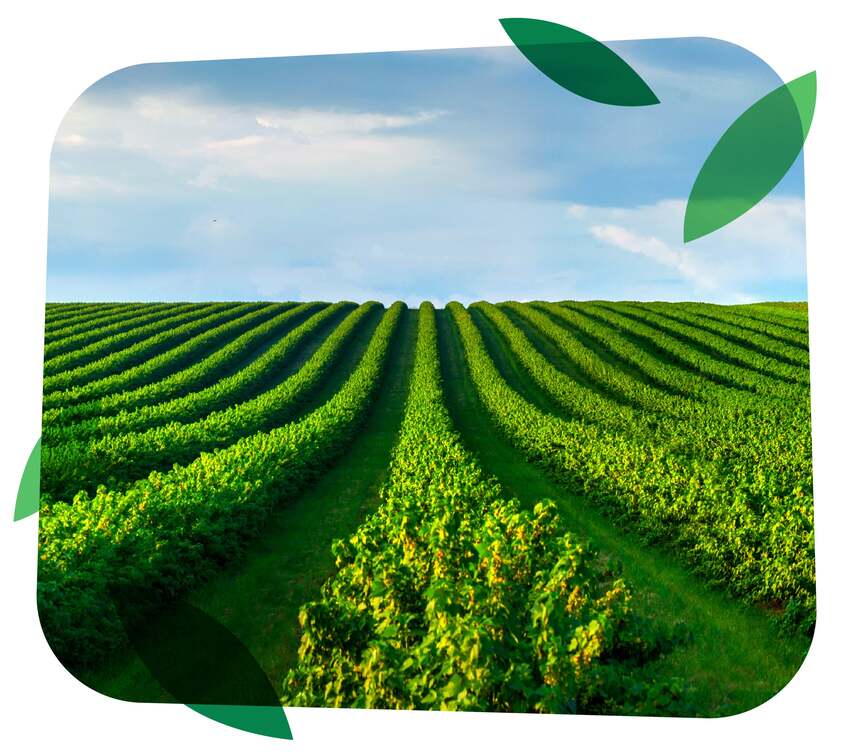One of the collaborations Haifa Group is particularly proud of is its involvement with the Educational Farm in Dimona, where students from local schools are introduced to the world of agriculture and engage in applied research. Since 2021, Haifa Group has been supporting the farm’s activities. For us, this partnership represents a full-circle moment—an inspiring connection between the community where many of our employees live and the heart of Haifa’s mission: delivering precise and efficient plant nutrition solutions.
Recently, a unique initiative developed at the farm brought another core value of Haifa Group to life: sustainable development. As part of a joint program by the Israeli Ministry of Education, the Ministry of Foreign Affairs, and the Jewish National Fund, which encourages student participation in the global effort to achieve the United Nations Sustainable Development Goals (SDGs), ninth-grade students from the Mofet program at Lehman School—guided by the farm’s staff and supported by Haifa Group—developed an innovative project to combat malnutrition and empower communities in developing countries. Their solution integrates advanced agricultural technologies, renewable energy, and smart production methods.
The project, named POWERLENS, is a pilot of a mobile mini-factory designed to grow water lentils—a fast-growing aquatic plant that provides a rich source of high-quality protein for human consumption. The factory operates entirely off-grid: it requires no external water source, and its energy needs are met by solar power.
Each unit can sustain a small settlement of up to 300 people in a developing region (e.g., Nigeria). The system can function continuously for six years, requiring only weekly harvesting. After this period, simple maintenance—replenishing the fertilizer and servicing the pumps—will allow it to continue operating and producing food.
The project directly supports three of the UN’s Sustainable Development Goals:
- Goal 2 – Zero Hunger: Providing an accessible, high-quality protein source for a balanced and healthy diet.
- Goal 8 – Decent Work and Economic Growth: Promoting community development, local training, and job creation.
- Goal 12 – Responsible Consumption and Production: Utilizing green energy and environmentally responsible agricultural methods.
To deepen their understanding of water lentils, the students conducted three trials examining factors influencing the plant’s growth rate: the amount and type of fertilizer, and the level of air infusion into the growth solution. Their goal was to determine the optimal growing conditions to maximize yield while minimizing resource use. The findings from these trials will support further development of this sustainable, tech-driven food production system and strengthen food security in vulnerable communities.
The POWERLENS project by the Dimona students is one of 15 finalists in the UN-backed project competition in Israel. Of these, three winning projects will be selected to present their solutions to a UN panel in Rome.
We are incredibly proud of the students and the Educational Farm team, and we wish them great success on this exciting journey! 🌱
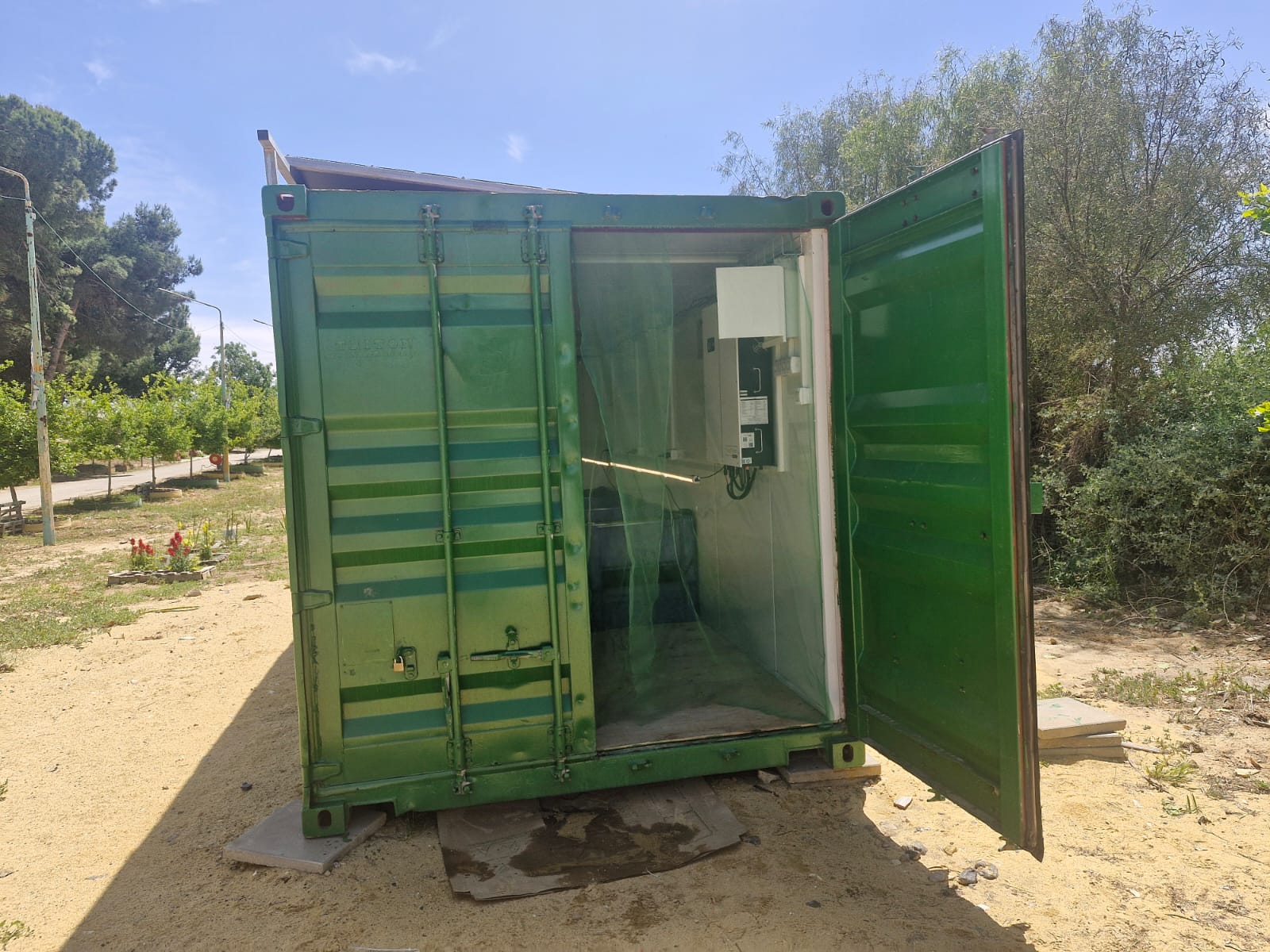 | 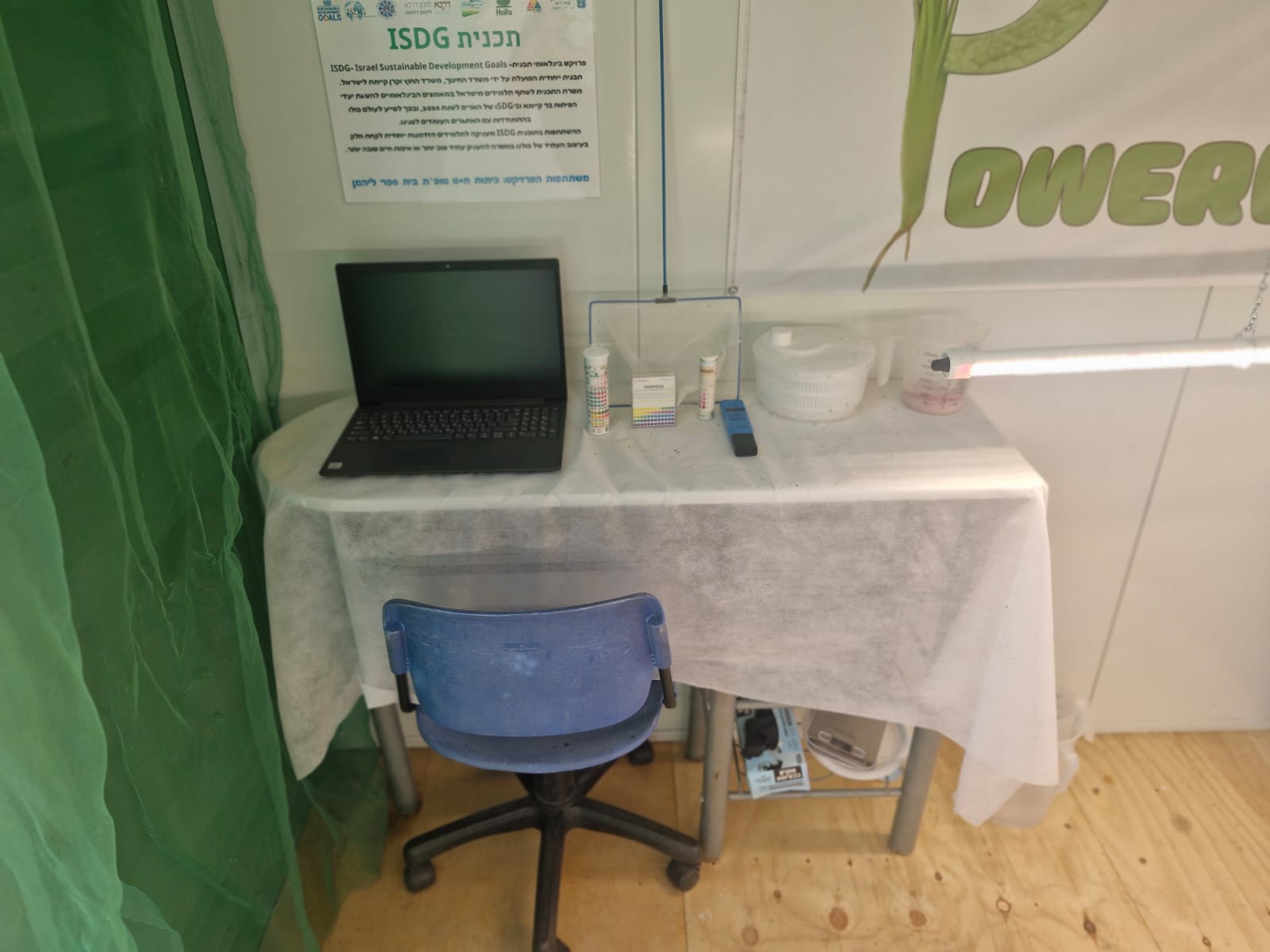 | |
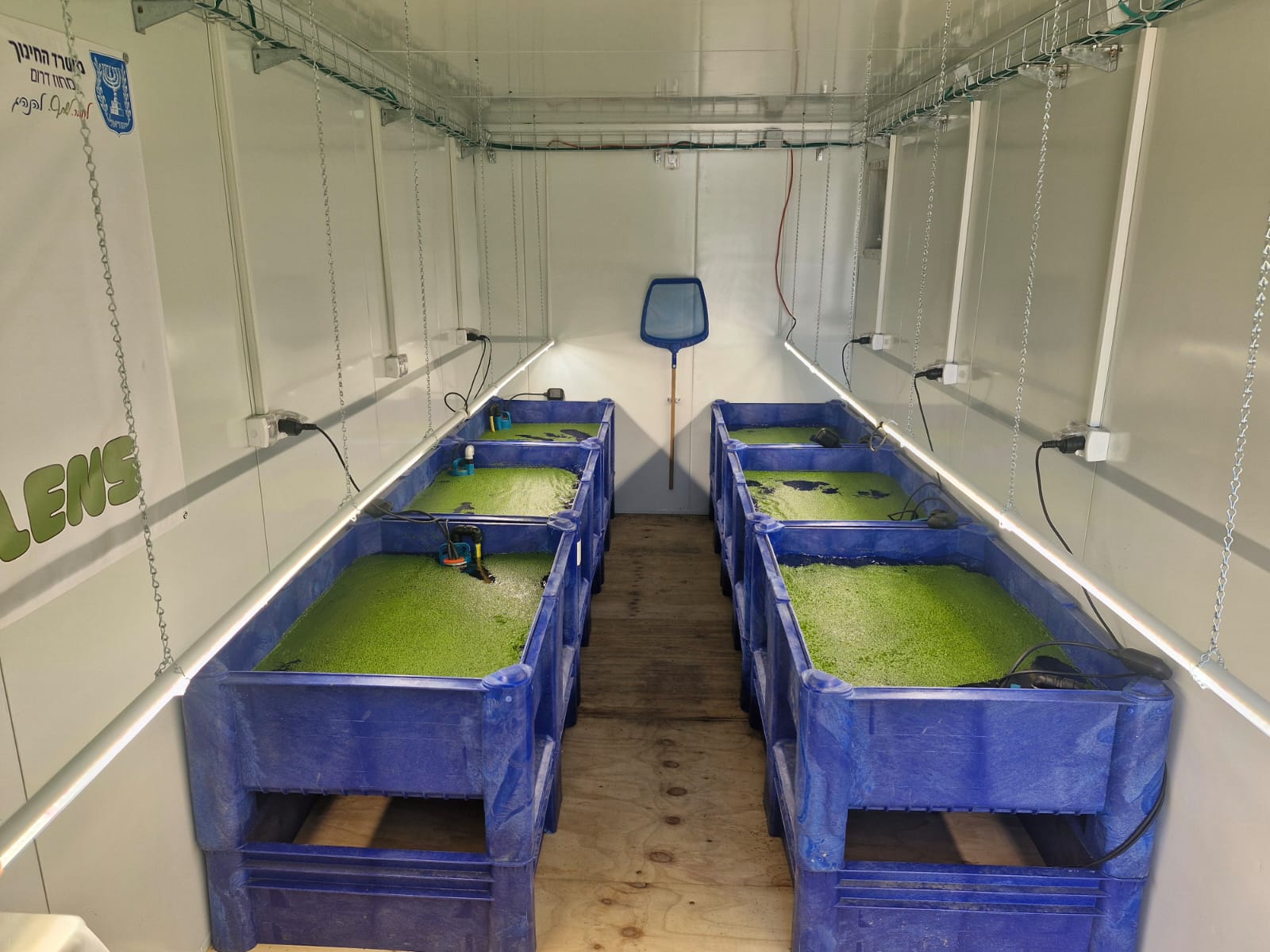 | 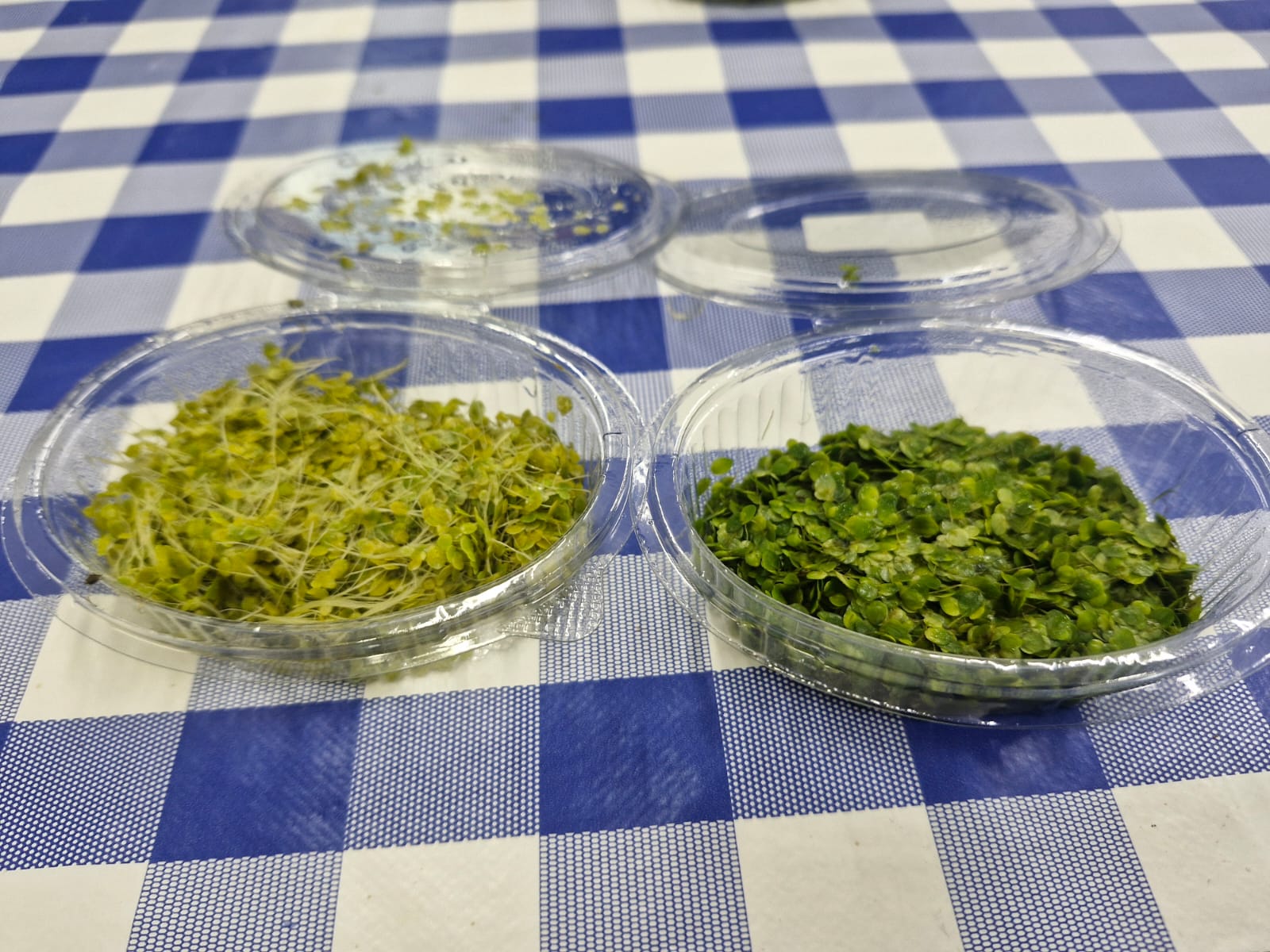 |


